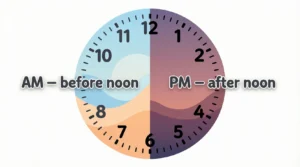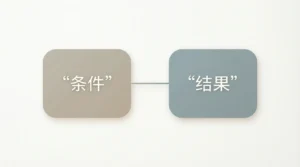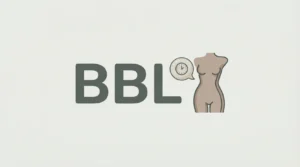Ever been told, “You’re not trying hard enough” and wanted to respond with a sarcastic slow clap? Yeah, same here.
😏 Welcome to How to Respond to You’re Not Trying Hard Enough 2026, where we ditch guilt trips and master the art of clever comebacks.
Whether it’s your boss, your gym buddy, or that one overly “motivational” friend—this guide’s got you covered.
So grab your coffee (or emotional support snack), and let’s learn how to clap back politely but powerfully.
Recognise Why You’re Hearing “You’re Not Trying Hard Enough”

- Ask politely what specific behaviour they’re referring to
- Say simply I’m willing to hear your concern, let’s talk specifics
- Notice the tone: is it judgement or concern?
- Reflect quietly: do I actually have room to improve?
- Remind yourself: effort isn’t always visible
- Accept you may feel hurt by this comment
- Consider the speaker’s context: are they stressed?
- Stay calm rather than react in anger
- Breathe deeply before responding
- Remind yourself you’re human and doing your best
- Acknowledge you might improve, while rejecting unfair blame
- Say: thank you for pointing it out, let’s work through it
- Don’t internalise it as a statement of your worth
- Remember: trying hard doesn’t always equal instant success
- Notice the judgement mask: often it’s not truly about you
- Set a boundary if the comment becomes repeated criticism
- Decide to respond later if emotions are high
- Understand that someone else’s standards may differ from yours
- Know your limits: you can’t pour from an empty cup
- Accept you might need help rather than just try harder alone
- Remind yourself: you don’t need to win someone else’s timeline
- Clarify what “hard enough” means in this situation
- Ask: what outcome are we working toward?
- Remember: doing your minimum may still be valid
- Treat the comment as data, not as final truth
- Ask yourself: what support do I need to try better?
- Decide: this is a prompt, not a verdict
- Remind yourself: progress beats perfection
- Note the difference between effort and control
- Release the burden of proving your worth to someone else
Calm Responses When Someone Says “You’re Not Trying Hard Enough”

- I understand you feel I’m not trying. Can you tell me what you see?
- I’m doing the best I can with what I have.
- I hear you. Let’s talk about what needs to change.
- I’m doing my part—and if I’m falling short, let’s fix it together.
- I may not look like I’m trying, but I am.
- I appreciate your concern. I’m committed to improvement.
- I’m open to feedback. What exactly would you like to see?
- Thanks for letting me know how it seems—I’ll reflect on it.
- My effort may not match your standard, but it matches mine.
- I will try to up my game. Meanwhile please know I care.
- If you think I’m not trying, please show me what you expect.
- I’m aware I could do more. I’m working on it.
- I’d like us to focus on solutions, not just criticism.
- I’m showing up. Your words won’t stop me from doing that.
- I don’t owe you perfection, but I owe you authenticity.
- Let’s make a plan together so I can meet the goal.
- I’m committed to progress—not excuses.
- I’m not perfect. But I refuse to view this as failure.
- I’ll work on it. Please tell me how I can improve.
- I’m giving this my energy. I respect if you don’t see it yet.
- I’m not neglecting the effort. I just need time and clarity.
- I prefer encouragement over judgment—and I’d like your help.
- This comment stings—but it will not stop me from moving.
- I’m responsible for my part. I’m also responsible for my self-respect.
- Thank you for sharing how it looks. Let’s adjust the path together.
- I value your input, but I also value realistic support.
- I’m doing my best. And that is enough today.
- Let’s shift from “not trying” to “trying differently.”
- My pace might differ from yours—and that’s okay.
- I’m here. I’m working. Let’s see what tomorrow holds.
Ways to Respond in a Work or Career Setting
- I’d like to review my current tasks with you so we align expectations
- Let’s set clear milestones so I know what “hard enough” means
- I am happy to extend my hours if that makes sense
- I’m prioritising high-impact tasks over busy work
- I’ll send you a weekly progress update so you see what I’m doing
- Could you tell me the key metrics you’re looking at?
- I appreciate the feedback—let’s identify one change I can act on immediately
- I’m open to training if I’m missing something in my approach
- I may need additional tools or resources to increase my output
- I will focus on what I can control and let results speak for themselves
- If you’re not seeing the effort, let’s audit the workflow together
- I’ll commit to deeper work blocks rather than constant busy signals
- I’ll block off time for improvement tasks rather than just maintenance
- I’ll review my support network and ask for help where needed
- I’ll reflect on whether my goal is realistic given the circumstances
- I’ll ensure my deliverables are clearly documented
- Let’s schedule a review meeting so I can track progress transparently
- I may look into ways to streamline my process rather than just increase hours
- I understand your point. I’ll provide tangible wins rather than vague efforts
- I’ll set smaller, visible wins to show progress
- I’ll ask for feedback mid-project rather than only at the end
- I’ll adjust my output, but I’ll also maintain quality
- I will ask if any external factors are affecting my pace
- I’ll keep my workload manageable so I don’t burn out
- I’ll stay consistent rather than erratic, as effort needs time
- I’ll document obstacles so it’s clear when I’m blocked
- I’ll make sure support is asked for early if I hit a wall
- I’ll aim for incremental improvement rather than overnight change
- I’ll balance trying harder with trying smarter
- I appreciate your standards. I’ll aim to meet them—but let’s confirm what they are
Responses in Personal Relationships or Friendships

- I care about this relationship. Let’s talk about what you mean.
- When you say I’m not trying hard enough, I feel unheard.
- I am trying—maybe it doesn’t look like you expect.
- Help me understand what you want from me.
- I’ll do my part. Will you meet me halfway?
- I would like clarity rather than assumption.
- I hear your frustration. I also deserve patience.
- I want to grow with you—not under your critique.
- I love you enough to listen. I also love myself enough to ask for respect.
- I’d rather we ask “how can we improve together?” than “why aren’t you doing more?”
- Your feelings matter. My effort matters. Both matter.
- I will try; please show understanding when things get hard.
- We’re on the same team. Let’s act like it.
- I’m aware there are gaps. I’m willing to fill them.
- Thank you for sharing your pain. I want to help heal it, not argue about effort.
- I may be falling short. But that doesn’t mean I don’t care.
- Please don’t reduce my worth to the speed of my work.
- I’m committed. I just need you here too.
- I’m not perfect—but I am present.
- If I were perfect you might not need to talk to me now.
- I’d appreciate input over accusation.
- Let’s build a bridge rather than burn one with criticism.
- I can take your feedback. I cannot carry your contempt.
- I want to grow with you but at my pace.
- I want your support more than your judgement.
- I’m trying to meet your expectations—but perhaps they need to be realistic.
- I’m doing the best I can. It doesn’t always look like you think.
- Let’s ask: what do we both need to do better?
- Your patience will help more than your pressure.
- I may stumble. I’ll stand back up. Please don’t assume I’m giving up.
Responses When It’s About You & Your Self-Talk

- I am doing enough today.
- My best may look different than your best—and that’s okay.
- Effort doesn’t always equal outside applause.
- I can see my progress even if others cannot.
- I will measure my growth by my terms.
- I am worthy of rest, even when I’m working hard.
- I am allowed to try and fail and still be trying.
- My value is not defined by someone else’s standard.
- I may not be perfect—but I don’t have to be.
- I accept my pace. I trust my journey.
- I am allowed to ask for support instead of going solo.
- I am doing something hard—even if it is hidden.
- I will speak kindly to myself when no one else will.
- I am improving. I may not be finished.
- I deserve acknowledgment—even if I don’t ask for it.
- I will celebrate small wins instead of waiting for big ones.
- I won’t compare my path to someone else’s.
- Some days effort is a whisper; some days it’s a roar.
- I will not silence my own progress to please others.
- I won’t keep score with other people’s expectations.
- I am resilient. I am enough.
- My effort matters—even when results lag.
- I will rest when I need to. That’s part of trying.
- I will ask for what I need. That doesn’t mean I’m not trying.
- I will forgive myself for not knowing all the answers.
- I will value my process as much as my product.
- I will relax the demand that trying hard must be visible.
- I will let myself grow at my own speed.
- I will treat criticism as information—not identity.
- I will keep going. Because I choose to.
Practical Ways to Move Past This Comment for Good
- Write down what you’re doing daily and track it
- Set a small tangible goal and check it off
- Ask a trusted person to witness your effort
- Take a break to recharge rather than pushing more always
- Ask for feedback rather than waiting to be judged
- Share your progress with someone so you feel seen
- Change the environment if it’s draining your energy
- Choose one habit to improve rather than dozens
- Remove toxic commentary from people who keep saying it
- Celebrate every little win you make
- Use failure as data, not as proof you didn’t try
- Accept that sometimes the system, not you, is the barrier
- Practice telling yourself you’re enough
- Limit comparison to others’ timelines
- Invest in a mentor to guide you rather than just pushing harder
- Set a sustainable pace instead of a sprint
- Prioritise tasks that matter over tasks that look busy
- Document obstacles so you don’t internalise blame
- Ask: what resources do I need to do better?
- Choose rest and recovery as part of your strategy
- Revisit your why so effort feels meaningful
- Reframe criticism as invitation to grow, not final verdict
- Build a small daily ritual that shows you’re trying
- Let go of perfection and aim for progress
- Surround yourself with people who see your effort
- Remind yourself you’re doing what you can right now
- Choose to move forward rather than stay stuck in guilt
- Decide today you will keep going, no matter what
- Track your results and see proof of progress over time
- Say aloud: I am trying. I will keep trying.
- Choose believing you’re capable rather than believing you’re failing
Supportive Responses You Can Use on Social Media or Text
- Thanks for your feedback. I’ll reflect on it.
- I’m working on my next steps and appreciate your patience.
- I may not show it always—but I’m putting in effort.
- I value our conversation. Let’s keep building, not tearing down.
- I hear your point. I’m ready to act.
- I’m not perfect. But I’m present.
- I’m doing more than you see.
- I’ll update you soon on changes I’m making.
- I’m choosing growth over comfort.
- I welcome ideas to help me improve.
- I don’t dismiss your view—I just ask for kindness too.
- I’m stepping up in my own way.
- I may stagger, but I will not stop.
- My progress might be quiet—but it’s real.
- Thank you for noticing. I’m still here, still trying.
- I ask for your support instead of your judgement.
- I’m showing up—even on days I don’t feel like it.
- Let’s turn critique into a plan.
- I’m not giving up on myself or this relationship.
- I am willing. I just need clarity.
- I value you and your feedback—and also my dignity.
- I’m doing the work. Let’s see where it leads.
- I’m open to change. I just ask for patience.
- I’m trying today. I’ll try better tomorrow.
- I may not look like it—but I care.
- I’m redirecting energy from trying harder to trying smarter.
- I choose to keep growing.
- I will share progress so you can see it too.
- I’m not ignoring your point. I’m processing it.
- I’m in this for the long haul—not just for the quick fix.
Conclusion
Hearing “you’re not trying hard enough” can sting. It can shake your confidence or make you doubt your worth.
But it doesn’t have to stop you. By recognising why the comment was made, choosing a calm response, and following through with real action, you take back your power.
The 30 responses under each scenario give you options—you pick the tone that fits. The practical steps and social responses give you the tools.
Use them. Grow with them. Remember: your effort is yours.
It matters even when others don’t see it. You don’t have to prove you’re trying—you just have to keep showing up.
And that’s more than enough.

Welcome to ReplyResponses.com, your go-to hub for quick, witty, and meaningful replies! Whether you’re looking for clever comebacks, thoughtful answers, or just some fun conversation starters, we’ve got you covered. Our platform makes responding easier, smarter, and way more enjoyable, helping you connect, engage, and impress effortlessly.












